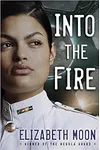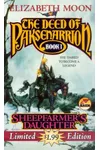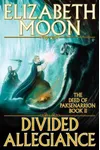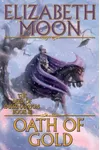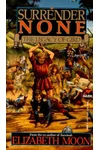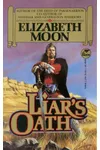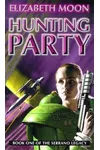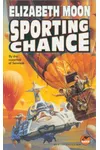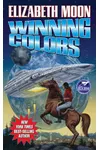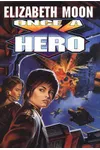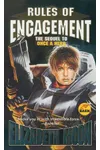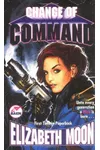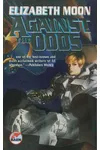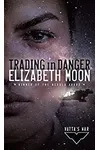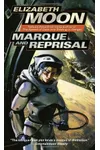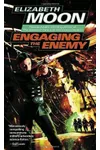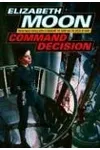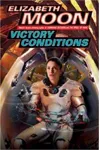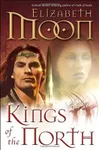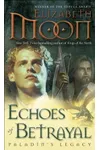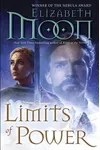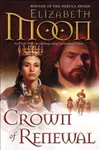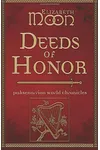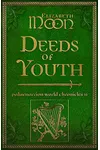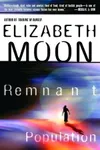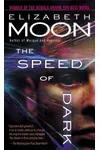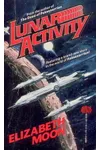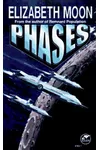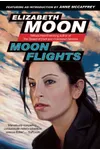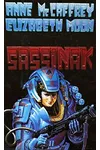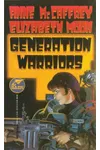Picture a Texas-born storyteller who swapped a Marine Corps uniform for a pen, crafting worlds where heroes clash with destiny—meet Elizabeth Moon! This award-winning science fiction and fantasy author has captivated readers with her military-infused tales, most notably her Nebula-winning novel, The Speed of Dark. With a life as vibrant as her stories, Moon’s journey from South Texas to literary stardom is a saga worth exploring.
The Making of Elizabeth Moon
Born Susan Elizabeth Norris on March 7, 1945, in McAllen, Texas, Moon grew up near the Mexican border, where cultural diversity sparked her lifelong curiosity about human behavior. Her early love for storytelling bloomed at age six with an illustrated book about her dog. After earning a history degree from Rice University in 1968, she joined the U.S. Marine Corps, serving as a computer specialist and rising to 1st Lieutenant. This military experience, coupled with a second degree in biology, shaped the authentic, gritty realism in her writing. By the 1980s, Moon’s passion for science fiction and fantasy led her to publish her first stories, kicking off a prolific career.
Elizabeth Moon’s Unforgettable Stories
Moon’s works are a masterclass in blending military precision with speculative wonder. Her debut, Sheepfarmer’s Daughter (1988), launched the epic fantasy trilogy The Deed of Paksenarrion, following Paks, a young woman who defies an arranged marriage to become a warrior. Praised for its vivid world-building and authentic battle scenes, it won the Compton Crook Award. In science fiction, The Serrano Legacy, a sprawling space opera, showcases her knack for strong female protagonists like Heris Serrano, navigating interstellar intrigue. Her 2003 Nebula winner, The Speed of Dark, takes a bold departure, exploring a near-future world through the eyes of an autistic data analyst, inspired by Moon’s son, Michael. Moon’s style weaves military strategy, biology, and ethical dilemmas, creating stories that feel both epic and deeply human.
Her versatility shines in series like Vatta’s War, where Kylara Vatta, a disgraced space academy cadet, rises to lead a merchant family’s fight against pirates. Moon’s ability to craft relatable characters and realistic conflicts has earned comparisons to giants like Lois McMaster Bujold. Whether it’s fantasy’s medieval grit or sci-fi’s cosmic stakes, her narratives pulse with authenticity, drawn from her Marine Corps days and eclectic interests like fencing and choral singing.
Why Elizabeth Moon Matters
Elizabeth Moon’s impact on speculative fiction lies in her trailblazing portrayal of strong, complex women and her unflinching exploration of moral questions. Her military background lends unmatched realism to her battle scenes, while her personal experiences, like raising an autistic son, infuse her work with empathy. Works like The Speed of Dark challenge societal norms, advocating for neurodiversity decades before it became mainstream. Moon’s influence extends beyond books—she’s a role model for blending diverse passions into art, inspiring writers to embrace authenticity. Her Nebula and Hugo nominations cement her as a cornerstone of modern sci-fi and fantasy.
About Elizabeth Moon
- Born: March 7, 1945, in McAllen, Texas
- Key Works: The Speed of Dark, The Deed of Paksenarrion, The Serrano Legacy
- Awards: 2003 Nebula Award, 1989 Compton Crook Award
- Fun Fact: She’s a skilled fencer and captain of the SFWA Musketeers!
Ready to explore galaxies and medieval quests? Snag The Speed of Dark or Sheepfarmer’s Daughter and dive into Elizabeth Moon’s thrilling worlds!

